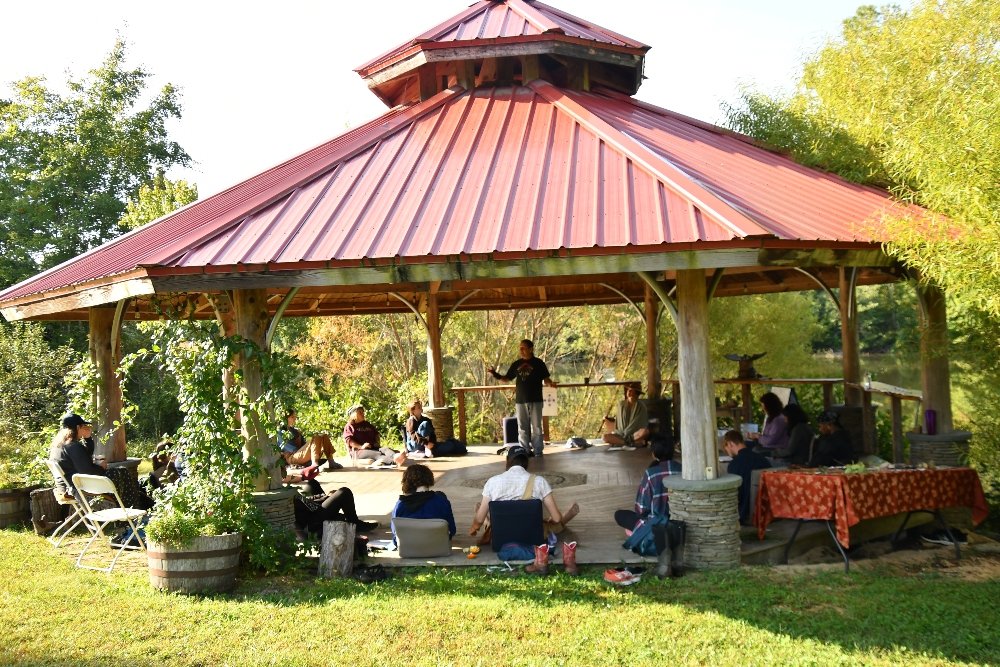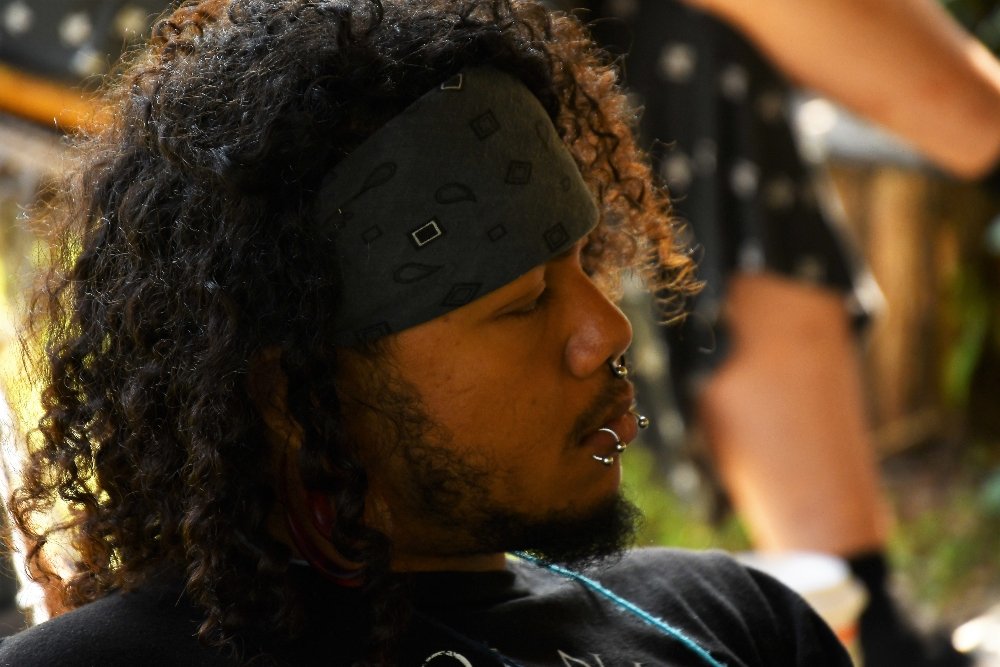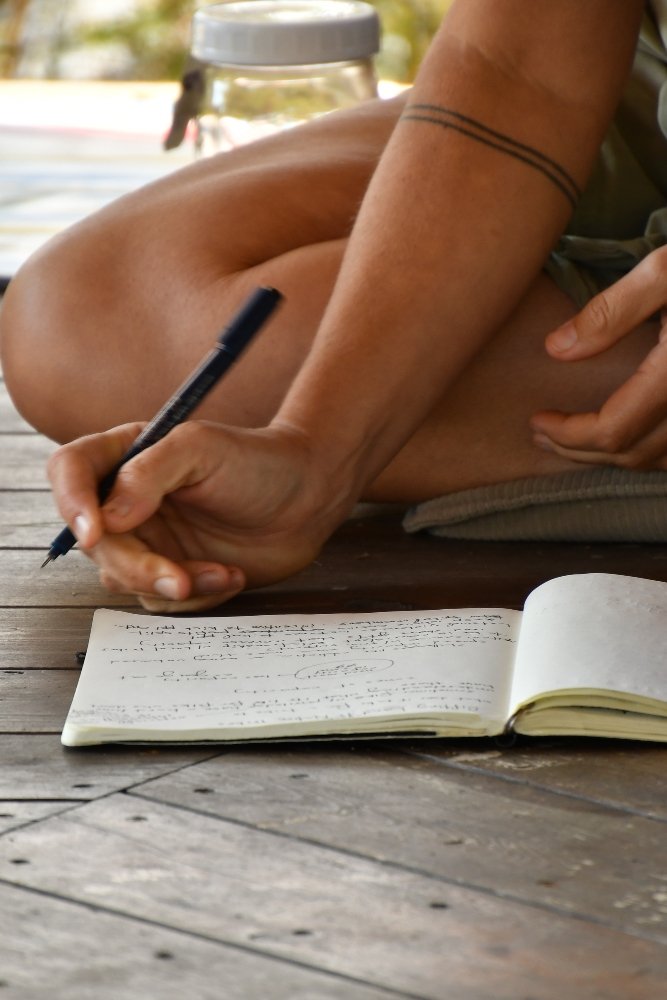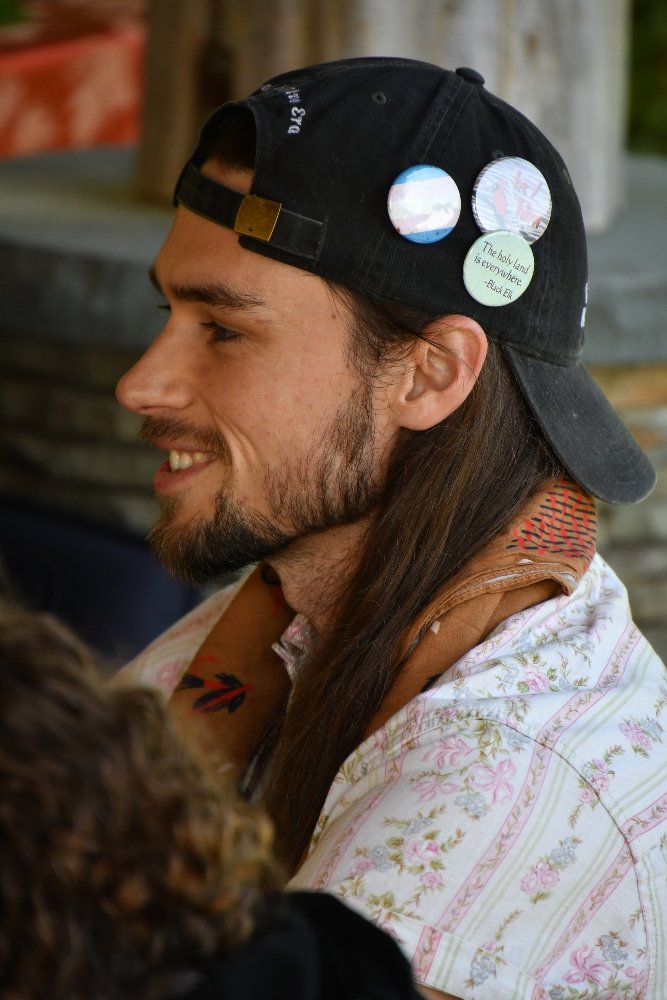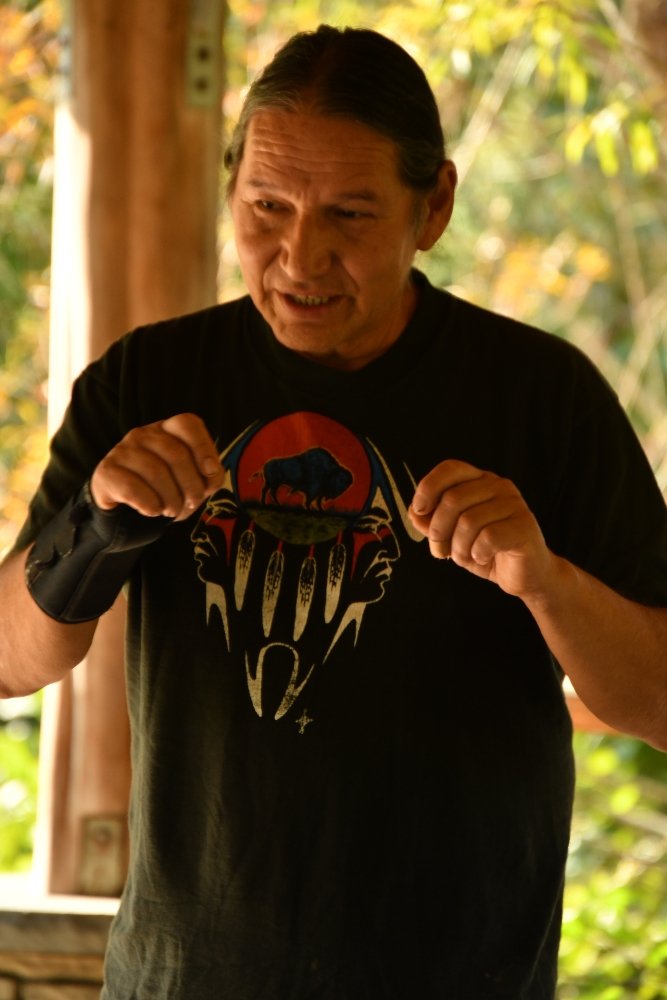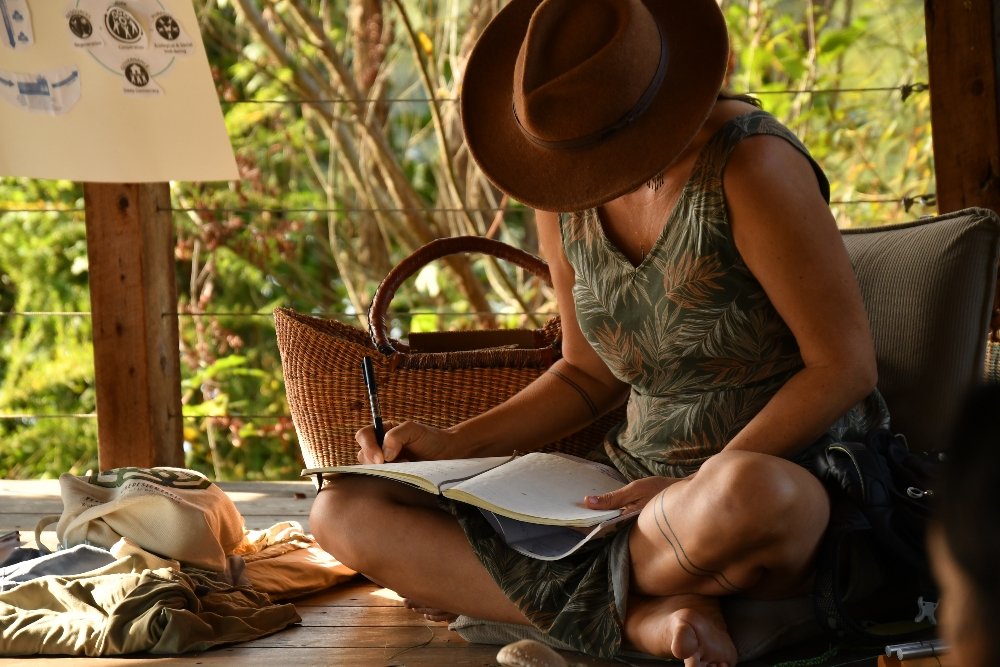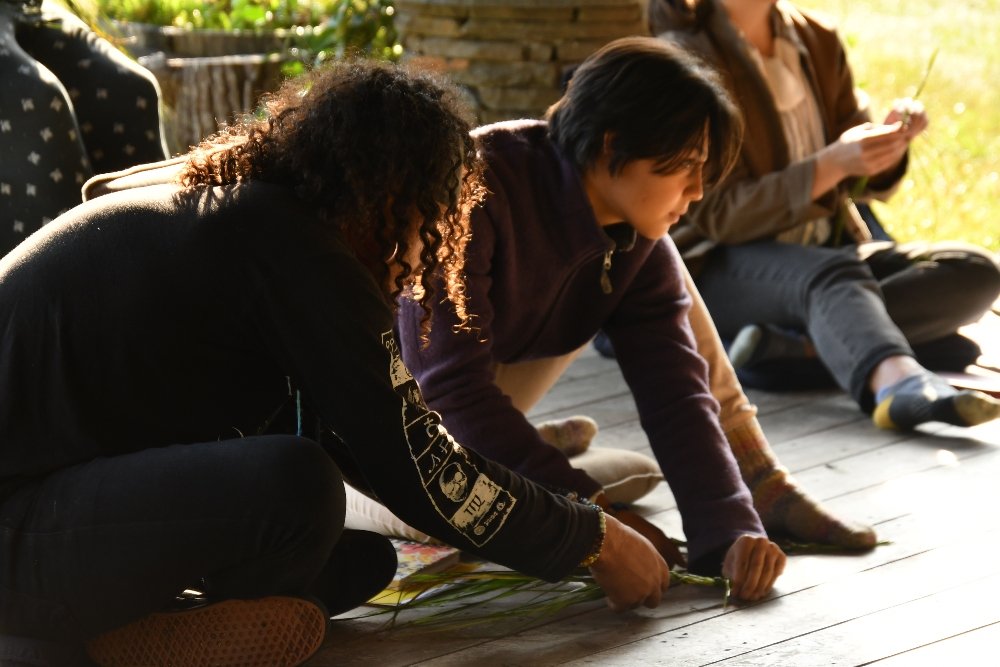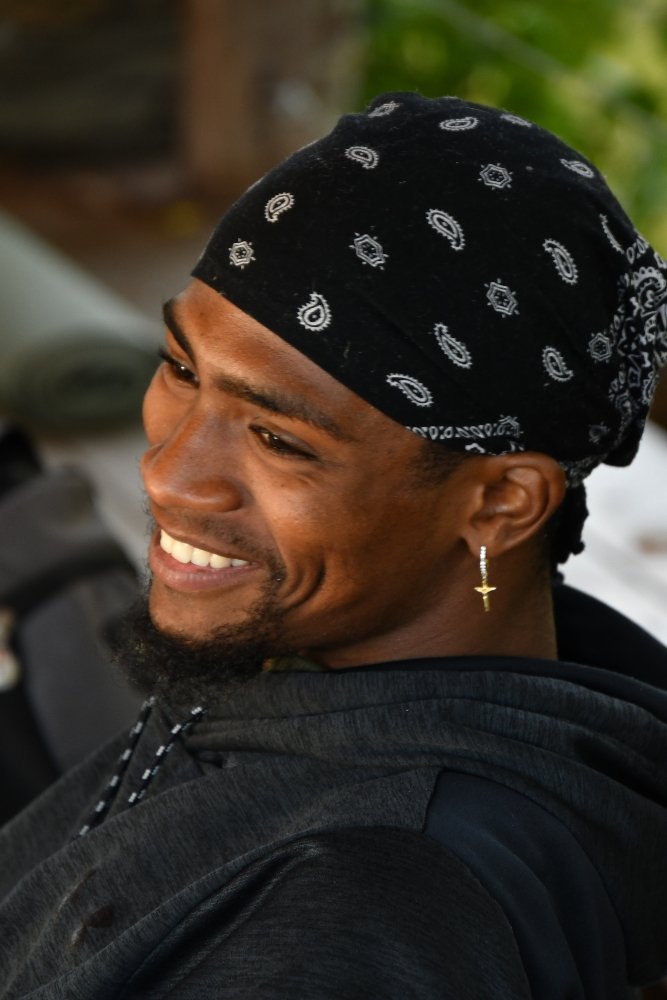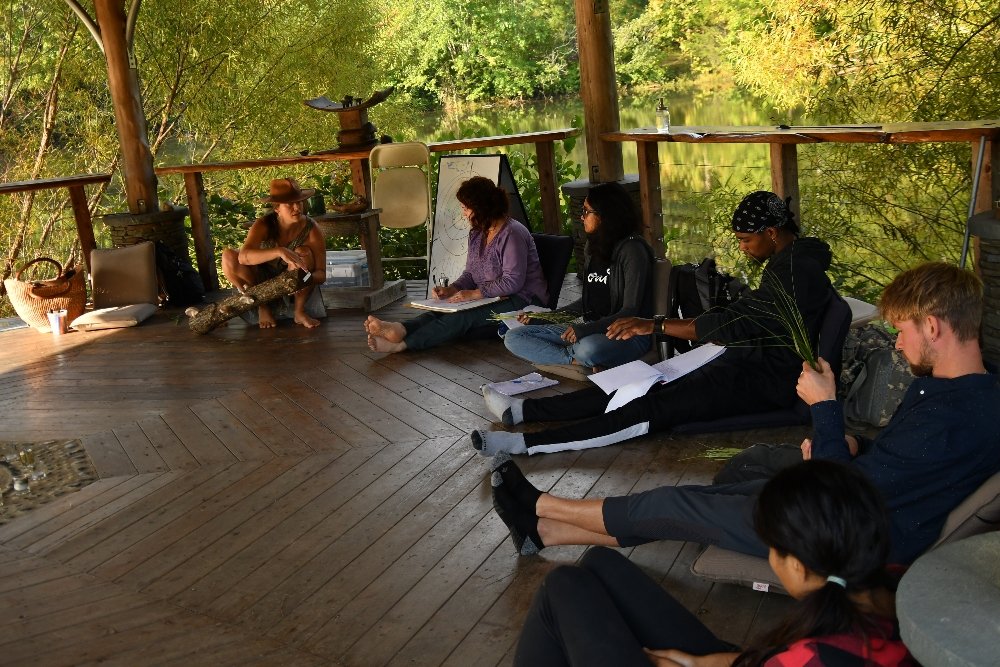Decolonizing Permaculture:
Steps Forward in Acknowledging the Past
By: Meg Toben
A few months ago, I posted a request to Facebook for an indigenous permaculture co-teacher for our Permaculture Foundations Certificate Program. This request opened the door to much sobering learning and a beautiful new partnership.
This Fall, I had the honor of co-teaching with Dan Wahpepah, Ojibwe Anishinaabe Kickapoo Sac & Fox Song Carrier and Permaculturist.
Dan brought a decolonization lens to our collaboration, and the difference was palpable. Instead of a didactic approach, we embraced the knowing that each participant brings their own wisdom, and that our job is to create the conditions for drawing forth, tending, and encouraging true, deep learning.
Each day began with prayer and song, and I can’t remember a week-long workshop I’ve more thoroughly enjoyed. Our 18 students were engaging with the ecological design principles, while thinking critically about how the term “permaculture” is a colonizer-coined term representing ecological knowledge and practices originally understood and developed by first nations peoples in relationship with their places.
We are so glad to be offering this weeklong course again in September of 2022.
Photo credit: Psalms White, Gordon Allen, Tim Toben
I am grateful to the friends and teachers who responded to my initial request explaining how permaculture can be used to perpetuate colonization culture, indigenous erasure, and cultural trauma.
Thank you Luca Gonzalez, Maggie Hickey, Eric Jordan, Fix Račhakwáhstha Cain, Beth Roach, Greg Allen and Mud Dauber School of Natural Building for your powerful contributions.
Thank you Sharon Hendricks, Frank Phoenix, Bill Wofford, Kash Mansori, Janaka Lagoo, Tabitha Blackwell, Topher Stephens, Danna Haile, Alison Sever, Kasey Kinsella, Kate Bunney and others who supported this effort.
Thanks to a generous seed grant, Dan Wahpepah’s vision of bringing together native permaculture teachers is becoming a reality in the form of a new gathering in 2022. If you are interested in participating or offering financial support, please be in touch.
My prayer is that this joins together, in a meaningful way, with the many movements around the world to recognize the atrocities of colonization and support a deep reconciliatory healing process.

